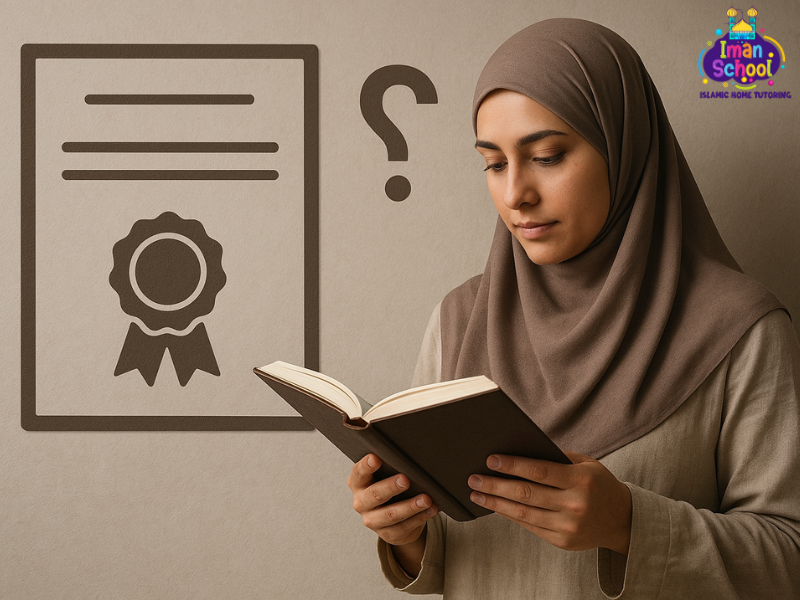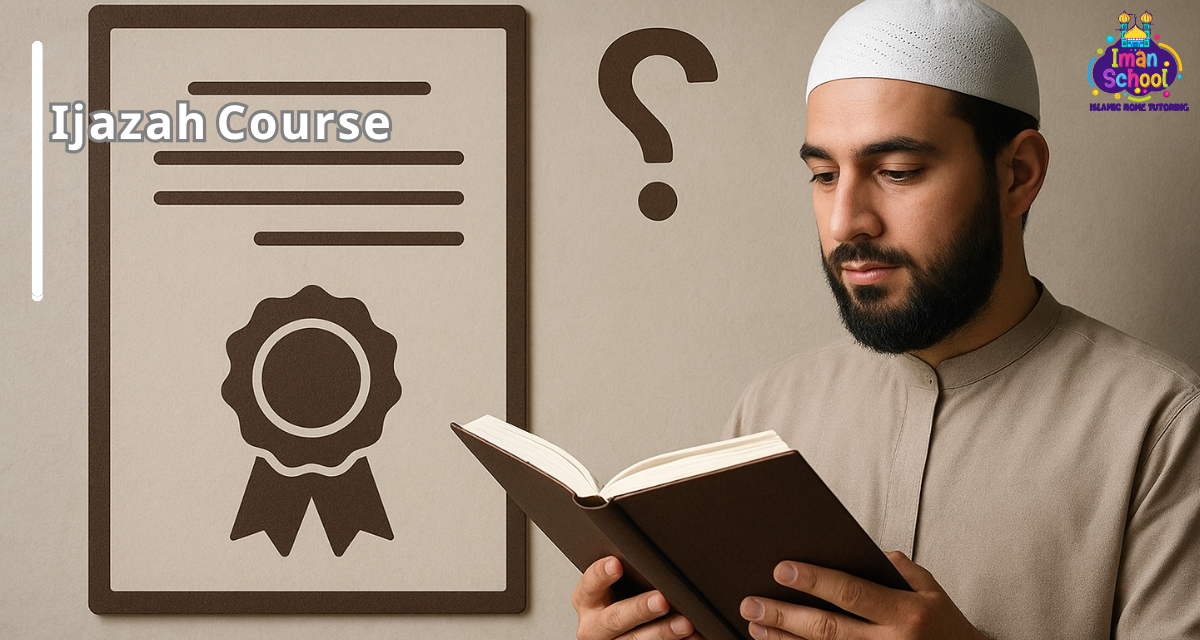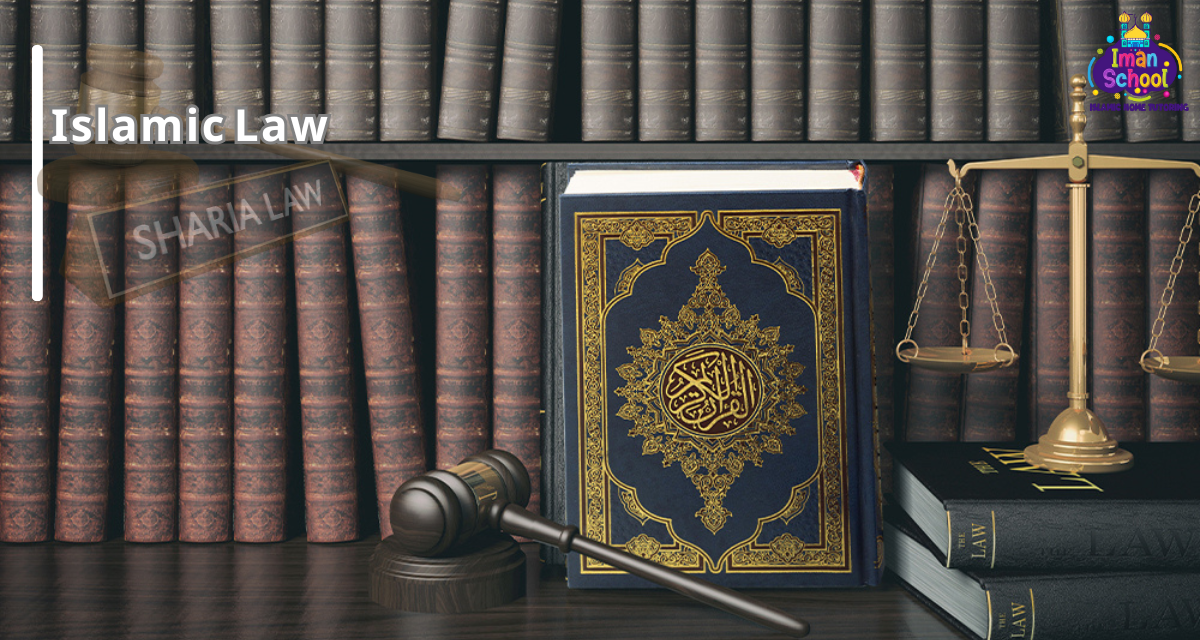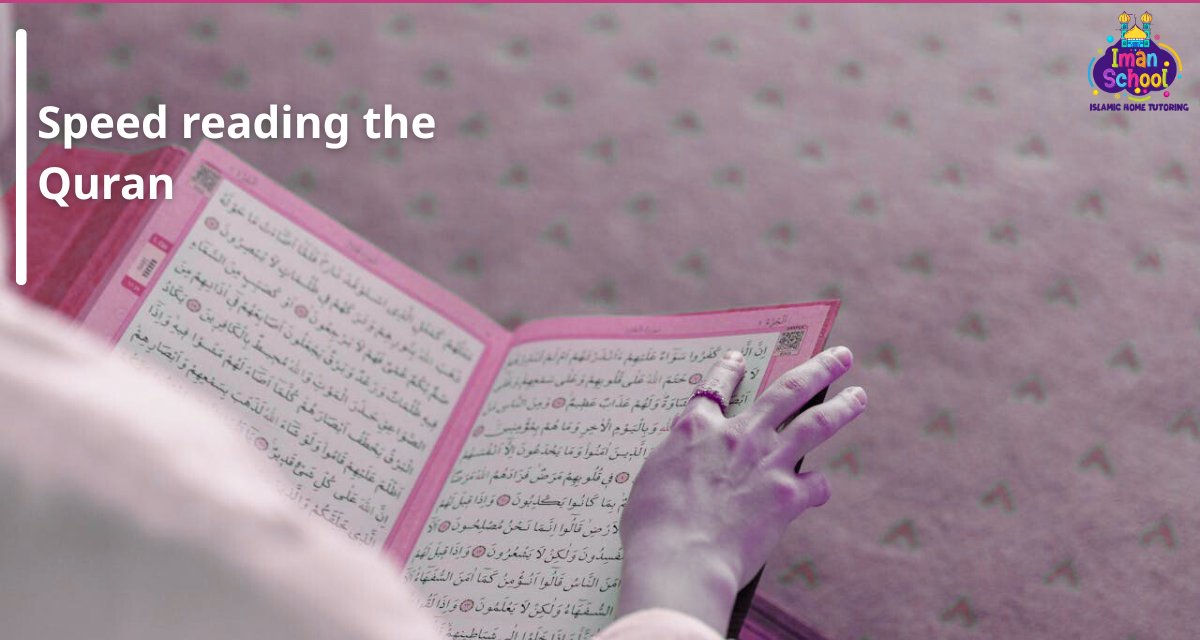For Muslims around the world, from students in the US and Canada to scholars in the UAE and Qatar, the term "Ijazah" carries immense weight. It is far more than just a certificate; it represents a profound spiritual and academic milestone. By enrolling in an Ijazah Course, you are not only seeking a certificate but also connecting with a tradition that preserves Islamic knowledge.
If you have ever wondered, what is Ijazah? you are exploring a concept that is central to the preservation of Islamic knowledge and has been a cornerstone of its educational system for centuries. This guide will provide a clear and comprehensive answer to that question, explaining its value, types, and how you can obtain this blessed license.
What exactly is an Ijazah in the context of Islam?
An Ijazah (الإِجَازَة) is a formal license or permission granted by a qualified scholar to a student, authorizing them to transmit a specific text or a body of knowledge. The word itself comes from the Arabic root jāza, which means "to permit" or "to authorize." In its essence, an Ijazah is a license to teach.
It is a personal and direct acknowledgment by a master (a Shaykh or Shaykhah) that the student has mastered a particular subject to the required standard and is fit to teach others. This is the simple answer to what is Ijazah Course.

Why is an Ijazah considered so valuable and important?
An Ijazah Course is considered so valuable because it is a mark of mastery and authenticity. Unlike a regular certificate that simply confirms attendance or passing an exam, an Ijazah signifies that the student has been personally supervised and vetted by an expert. It is an acknowledgment that the student has not only memorized or read a text but has done so with a high degree of precision and understanding.
This is the key difference between an Ijazah vs certificate. The Ijazah is a personal endorsement, not just a grade. So, when people ask, what is Ijazah and why does it matter, this personal endorsement is the core of the answer.
What is the difference between an Ijazah and a regular certificate or diploma?
A regular certificate or diploma is a modern academic concept that attests to the completion of a course or program. It is a general acknowledgment of a student's educational journey.
An Ijazah Course, on the other hand, is a traditional system of personal transmission. It is a specific license to transmit a particular text (like the Quran or a book of Hadith) from a teacher to a student. It signifies a direct, one-on-one transfer of knowledge, making it a sacred link in a chain of narration.
How does an Ijazah connect me to a sacred chain of knowledge?
This is the most spiritually profound aspect of the Ijazah. When a teacher grants an Ijazah, they provide the student with their Sanad—a list of their teachers, all the way back to the original source of the knowledge. For a Quranic Ijazah Course, this chain goes back to the Prophet Muhammad (PBUH) through his companions.
For a Hadith Ijazah, the chain goes back to the author of the book (e.g., Imam Bukhari) and from him to the Prophet (PBUH). This unbroken chain of narration Islam gives the knowledge an immense sense of authenticity and blessing, and is the true answer to what is Ijazah's spiritual value.
What is the "Sanad" and why is it essential for an Ijazah?
The what is Sanad in Islam is the chain of narrators or teachers that connects a student to the original source. It is the hallmark of traditional Islamic education and is essential for an Ijazah. Without a Sanad, the Ijazah has no real academic or spiritual value.
It is the Sanad that guarantees the authenticity and reliability of the transmitted knowledge, a system that has preserved the purity of the Quran and Hadith for over 1,400 years. This is a critical component of answering the question: what is Ijazah Course?
What are the main types of Ijazah I can obtain?
The Ijazah system is comprehensive and covers all major Islamic sciences. The main types of Ijazah you can obtain are:
-
Ijazah for Quran Recitation (Tajweed): The most common type.
-
Ijazah for Quran Memorization (Hifz): A highly esteemed type.
-
Ijazah in Hadith: A license to narrate Hadith books.
-
Ijazah in Qira'at: For the different modes of recitation of the Quran.
-
Ijazah in Fiqh, Aqidah, and other Islamic sciences: A license to teach a specific book or subject.
What is an Ijazah for Quran recitation (Tajweed)?
An Ijazah for Quran recitation, or a Tajweed Ijazah, is a license to teach the correct recitation of the Quran. To earn this Ijazah, a student recites the entire Quran from beginning to end to a qualified teacher who holds a valid Ijazah. The teacher listens carefully, ensuring every word is pronounced correctly, and every rule of Tajweed is applied flawlessly. This is the purpose of a Quran Ijazah course and the goal of anyone who wants to learn Tajweed with Ijazah.
What is an Ijazah for Quran memorization (Hifz)?
An Ijazah for Hifz is a license to teach the memorization of the Quran. The requirements for Hifz Ijazah are more rigorous than for Tajweed. The student must recite the entire Quran from memory, without looking at the Mushaf. The teacher verifies the student's memorization and ability to recall and recite the verses with accuracy. This is a highly sought-after Ijazah and a testament to the student's dedication and hard work.
How does an Ijazah for Hadith work?
A Hadith Ijazah online or in person is granted when a student reads a book of Hadith to a certified scholar, or has it read to them. The student then receives a license to narrate that specific book, with a Sanad that connects them to the author of the Hadith book and ultimately back to the Prophet (PBUH). This is the traditional way that knowledge of the Prophet's sayings has been preserved and transmitted.
What are the requirements and process for obtaining an Ijazah?
The process for obtaining an Ijazah is highly personalized and requires a direct relationship with a certified teacher. The basic requirements are:
-
Finding a qualified teacher: A what is a Shaykh with Ijazah is a scholar who already holds an Ijazah in the subject you wish to study.
-
Mastering the text: This involves memorizing the text and its rules.
-
Personal recitation and verification: The student must recite the entire text to the teacher for a thorough check.
-
Final approval: The teacher grants the Ijazah upon their satisfaction with the student's mastery.
How long does it take to earn an Ijazah?
There is no fixed time to earn an Ijazah. The duration depends entirely on the student's level of knowledge and their dedication. A Tajweed Ijazah could take anywhere from a few months to a few years, while an Ijazah in Hifz could take several years, depending on the student's memorization abilities. The time it takes is directly proportional to the student's effort to truly master the subject, which is the whole point of the Ijazah system.

Can I get an Ijazah online, and is it a valid way to receive one?
Yes, absolutely. With the advent of modern technology, it is now possible and entirely valid to get an Ijazah Course online. The core of the Ijazah system is the personal supervision of a certified teacher, and this can be achieved effectively through video conferencing.
This is an incredible opportunity for Muslims in places like America, Canada, and Australia to connect with highly qualified scholars in the Middle East and elsewhere.
Iman School is a leading platform that offers an accredited Ijazah online program, making this sacred tradition accessible to a global audience. The validity of the Ijazah comes from the authenticity of the teacher's Sanad, not the physical location of the student.
So, for those asking what is Ijazah and can I get it online, the answer is a resounding yes, as long as the platform is reputable.
Is an Ijazah necessary for me to teach the Quran or Hadith?
While there may be no formal law requiring it, it is considered an academic and spiritual prerequisite to have an Ijazah to teach the Quran or Hadith. An Ijazah is an assurance to your students that you have been personally verified and approved by a qualified scholar.
This gives you immense credibility and ensures that you are teaching correctly. This is the answer to the question: is it necessary to have Ijazah to teach. It is the spiritual equivalent of a medical license.
What are the spiritual and academic benefits of having an Ijazah?
The benefits of Ijazah are both spiritual and academic. Spiritually, you become a part of a blessed and continuous chain of transmission that leads back to the Prophet (PBUH).
Academically, an Ijazah is the highest form of certification in traditional Islamic scholarship. It is a mark of excellence that will give you immense credibility in the eyes of students and fellow scholars. For those looking for an Ijazah for beginners, this is a powerful start to a lifelong journey of learning.
How can I find a certified teacher or program to start?
Finding a qualified teacher with a valid Sanad can be challenging, especially in non-Muslim countries. This is where a trusted platform is invaluable. Iman School is the ideal solution, providing access to a wide network of certified scholars who hold Ijazahs in various Islamic sciences.
We offer a structured Ijazah online program for those seeking to begin their journey, from Ijazah Course for beginners all the way to advanced levels. Our expert teachers will guide you step by step to ensure you meet all Hifz Ijazah requirements or any other Ijazah requirements. Visit our website to find your perfect teacher today and start your journey towards earning this blessed license.
In conclusion, what is Ijazah Course?
Ijazah (الإجازة) is a traditional Islamic certification granted by a qualified scholar to a student, confirming that the student has mastered a specific text, subject, or recitation (such as the Qur’an). It serves as both a license to teach and transmit that knowledge and as a chain of authenticity connecting the student back to earlier scholars, often reaching the Prophet Muhammad ﷺ.
What is the ultimate purpose of the Ijazah system in Islamic tradition?
The ultimate purpose of the Ijazah system is to protect the authenticity and purity of Islamic knowledge. In a world of misinformation, the Ijazah ensures that the most sacred texts—especially the Quran and Hadith—are transmitted accurately from one generation of scholars to the next, preserving a pure Ijazah in Hadith and Quranic tradition.
It is a testament to the Muslim community's deep commitment to preserving divine revelation through a rigorous, personalized, and spiritually charged system of education. The Ijazah certification is not an end in itself, but a license to continue a sacred chain of learning and teaching. The answer to what is Ijazah is a testament to the depth and rigor of Islamic scholarship.




